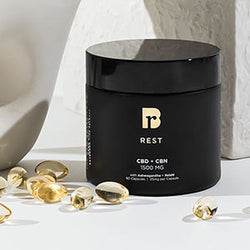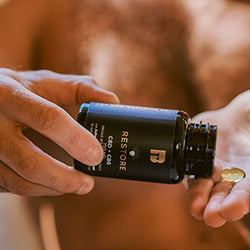
Everyone has anxieties at some point in their lives, especially around stressful periods. But some of us find it more difficult than others to manage our worries.
Below are some ideas to consider if anxieties affect your daily-life. You may, however, need professional help if your anxieties are severe.
Green Exercise: Take a Walk in Nature
It is well known that exercise can improve physical health but evidence suggests there are additional benefits to mood when activities like walking or cycling are performed in nature.
A study by the University of Essex suggests just five minutes of exercise in outdoor environments not only increases physical activity, with what feels like easier work than the gym, but also improves mood and self-esteem.
Phytoncides – given off by plants to protect them from insects and rotting – are also thought to reduce stress. A Japanese study found that being amongst plants – “Shinrin-yoku” or “Forrest Bathing” - produced lower concentrations of cortisol, lower blood pressure and a lower pulse rate.
A brief walk in the morning in the woods or a park can have a further benefit: helping to shut off melatonin, the hormone responsible for your sleep-wake cycle. This, in turn, can help you develop a stable body clock so you can sleep better at night.
And walking in nature is free!
Meditation
Time spent familiarising ourselves with anxiety-inducing thoughts can change our relationship with those thoughts. Research shows a consistent meditation practice can improve our ability to regulate emotions.
Gratitude Works!
Focusing on the positive impact things in our lives have on us can also have a big effect on mood.
A 2013 study found that grateful people experience feel healthier and report fewer aches and pains than others.
Keeping a daily gratitude journal can decrease the stress hormone, cortisol, and can play a key role in resilience.
Diet
Several studies show a link between diet and psychology. To function well, you need a well-balanced diet rich in nutrients – stick to lean proteins, whole grains and fruit and vegetables, and avoid sugar and processed foods.
Supplements
As with all food supplements, advice from a health-care professional should be sought before trying any of the below, especially if you are taking medications.
Ashwagandha
An adaptogen herb sometimes known as ‘Indian Ginseng’ that may help relieve anxiety by supporting the body’s stress response. Studies have concluded that ashwagandha can significantly improve symptoms of anxiety.
5-HTP (5-hydroxytryptophan)*
5-HTP increases levels serotonin, which helps regulate mood and sleep patterns.
*Do not take 5-HTP supplements with any prescription anti-anxiety or anti-depressant medications.
Magnesium
Magnesium plays an important role in many functions of the body, including helping your muscles relax, and is commonly used to combat anxiety.
St John’s Wort**
Several studies show St John’s Work may help to relieve symptoms of anxiety and depression. It is believed that it does this by supporting neurotransmitters in the brain. **Do not take if you are pregnant.
Raw Botanics Daily CBD
Cannabidiol, or CBD, is becoming known as a compound from Hemp that can deliver the potential health benefits of the plant without any psychoactive ‘high’ side effects.
Studies support the idea that CBD may relieve some symptoms of anxiety. It’s thought that CBD effects 5-HT1A and TRPV1 receptors that play an important role in neurotransmitters that calm responses to stress.
IMPORTANT NOTE
All information, content or linked materials in this article and on this website is for discussion only and is not medical or legal advice and must not be relied on as such. The information is not a substitute for professional medical expertise. Please see our full Disclaimer and Terms of Service for full details.







